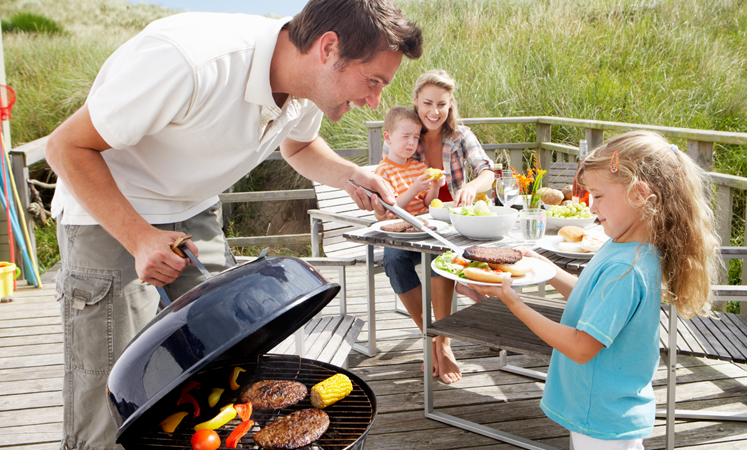Barbecuing is a great way to cook in the summer but it can also increase the formation of carcinogens. Get tips for reducing them below!
The weather is getting warmer and the nights are long: barbecue season is here! Enjoying more time outdoors is a priority for many and barbecuing allows just that. This cooking method can be especially enticing when the heat of summer hits – the last thing anyone wants to do is turn on their oven to cook dinner!
Recipes for light, spring meals are in demand as farmers markets begin to open and fresh, local foods start to fill our grocery stores. Even those New Year’s resolutions that we long forgot about begin to creep back into our minds as we emerge from the dreary winter and feel the desire to “spring clean” our health.
Many healthy meals can be prepared on the barbecue and this cooking method can really enhance flavour. However, it can also increase the formation of carcinogens (cancer causing substances).
Luckily, there are some techniques you can use to significantly reduce their formation:
- Marinate meat;1 this enhances flavour and reduces carcinogen formation. Use an oil free marinade as the oil can cause flare-ups.
- Don’t overcook your food, cook at a lower temperature,2 and try to prevent charring.
- If you’re using a charcoal barbecue, wait until the coal is glowing red and smoking has stopped before using it.2
- Cook lower fat meats. Fat drippings cause flare-ups and more smoke (both increase the formation of carcinogens).2,3
- Barbecue more vegetables—they naturally form fewer carcinogens than meat. Grill them separately from meat if possible.2
For three great recipes to add to your barbecuing repertoire, check these out:
Are you planning a barbecue or picnic with friends or family? It is important to brush up on your food safely knowledge too! Here are some excellent tips to keep in mind: Three Food Safety Tips for a Healthy Summer Outing. Happy grilling!
By Melissa Baker, MHSc, RD
References
- Salmon, C. P., Knize, M. G., & Felton, J. S. (1997). Effects of marinating on heterocyclic amine carcinogen formation in grilled chicken. Food and Chemical Toxicology, 35(5), 433-441.
- Kocak, D., Ozel, M. Z., Gogus, F., Hamilton, J. F., & Lewis, A. C. (2012). Determination of volatile nitrosamines in grilled lamb and vegetables using comprehensive gas chromatography–Nitrogen chemiluminescence detection. Food chemistry, 135(4), 2215-2220.
